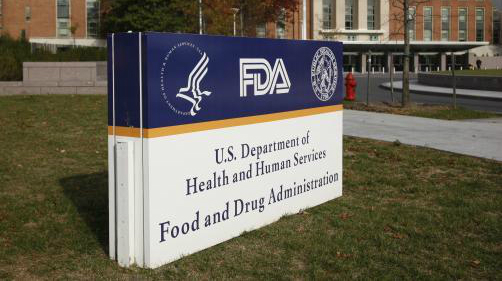Keytruda should lose stomach cancer indication, says ODAC

The FDA's Oncologic Drugs Advisory Committee (ODAC) has voted to strip Merck & Co's Keytruda of its accelerated approval in gastric and gastroesophageal junction (GEJ) cancer, despite a lack of treatment options in these patients.
The panel voted 6 to 2 that Keytruda (pembrolizumab) should not stay on the market for PD-L1–positive gastric or GEJ adenocarcinoma in patients who have received two or more earlier lines of therapy.
Merck's drug has been approved for this use since 2017, but failed to show a statistically significant improvement over third-line chemotherapy in either of two confirmatory trials – KEYNOTE-061 and KEYNOTE-062.
A key consideration for the ODAC was the results of the CheckMate-649 study of Bristol-Myers Squibb's rival drug Opdivo (nivolumab) plus chemotherapy as a first-line treatment for advanced gastric/GEJ cancer, which showed improved survival versus chemo alone last year.
That study – the first to show a survival advantage for a checkpoint inhibitor in this setting – resulted in Opdivo's approval for this indication earlier this month and has shifted immunotherapy earlier in the treatment pathway.
Panellists said that the studies Merck has proposed to back up use of Keytruda in third-line gastric/GEJ cancer were unlikely to do so, and they said that patients who have already received chemotherapy alone as their initial therapy can still get Keytruda through expanded use programmes.
That said, there were calls for the removal of the indication to be delayed for a few months to cover second-line patients who have yet to be treated with a checkpoint inhibitor.
Richard Pazdur, head of the FDA's Office of Oncologic Diseases, told the meeting that there is clearly a role for checkpoint inhibitors in gastric cancer, but that is as therapy for previously-untreated patients where a survival benefit has been demonstrated.
While the ODAC's vote isn't binding, the FDA seldom overrules the conclusions of its expert advisers.
The ODAC convened a three-day meeting this week to review discuss three immuno-oncology drugs granted conditional approvals in six cancers that failed follow-up studies, and voted to keep them in place for the first three candidates under scrutiny.
The mood changed on the final day however, as two of the three approvals were voted down.
There was relief for Merck as Keytruda was backed by 8 votes to 0 by the ODAC to retain its use as a second-line treatment of advanced hepatocellular carcinoma (HCC), the most common form of liver cancer, in patients previously treated with Bayer/Onyx’s Nexavar (sorafenib).
The panel was less impressed with Opdivo's standing in the same indication, however, and voted 5 to 4 against keeping it on the drug's label.
While the results of Keytruda's confirmatory trial KEYNOTE-240 didn't meet statistical significance for increased survival, there was agreement that the trends were in the right direction.
Moreover, another follow-trial – KEYNOTE-394 – is due to be reported in the coming months which should provide further data on the benefit of Keytruda as second-line monotherapy for HCC.
It was a different story for BMS' drug, which flunked the confirmatory CheckMate-459 study with little to choose between the Opdivo and control groups on survival.
Once again, panellists expressed the view that upcoming studies are unlikely to shed any further light on the drug's role in this type of cancer, while another consideration was the recent approval of Roche's checkpoint inhibitor Tecentriq (atezolizumab) with Avastin (bevacizumab) as first-line therapy for HCC.












